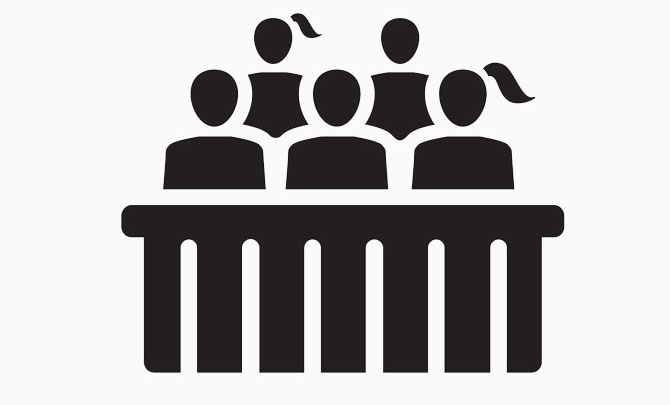The First Amendment guarantees some of our most important rights, including freedom of speech, religion, and the press. It also protects Americans’ right to participate in protests and to petition (make a formal request of) the government.
Subscriber Only Resources


Access this article and hundreds more like it with a subscription to Junior Scholastic magazine.
Article Options
The Bill of Rights
When our nation’s Founders created the United States Constitution in 1787, not everyone was happy with it. Some states agreed to approve it only if a list of individual rights was added. Fortunately, the Framers of the Constitution had created a process for amending, or changing, the document if needed. In 1791, the first 10 amendments—known as the Bill of Rights—were added. They outline the basic rights and freedoms of Americans. Here’s a breakdown of each one.
1st Amendment

2nd Amendment

The Second Amendment is about the right to bear arms, or own guns. What it means in the 21st century is a subject of intense debate.
3rd Amendment

The Third Amendment prohibits the government from forcing citizens to quarter (shelter) soldiers in their homes. Why? Before the Revolutionary War (1775-1783), the British forced colonists in America to house their troops.
4th Amendment

Americans’ right to privacy is guaranteed under the Fourth Amendment. It protects people against unnecessary or unreasonable searches or seizures. Police must have a court-issued warrant or “probable cause” to search someone on his or her property.
5th Amendment

The Fifth Amendment protects the rights of anyone accused of a crime. It assumes that everyone is innocent until proven guilty, and it protects people from testifying against themselves.
6th Amendment

Under the Sixth Amendment, Americans accused of a crime are guaranteed the right to a speedy, public trial by an impartial jury.
7th Amendment

The Seventh Amendment guarantees the right to a trial by a jury in civil (private) legal cases in which damages are more than $20. (Civil cases involve disputes between people.)
8th Amendment

This amendment prohibits cruel and unusual punishment for crimes. It also protects people from having to pay unreasonably high fines or bail-money given to a court in exchange for an accused person’s release from jail before trial.
9th Amendment

The Ninth Amendment recognizes that Americans have additional rights that are not listed in the Constitution.
10th Amendment

This amendment says that powers not given to the U.S. government by the Constitution belong to the states or to the people.